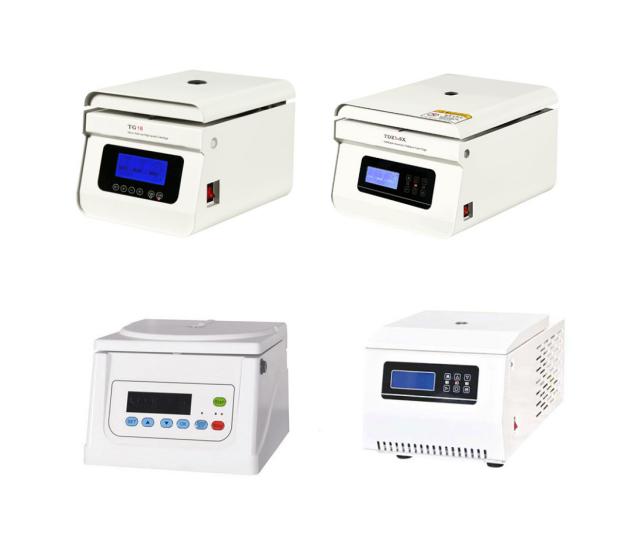Centrifuges are essential laboratory instruments used for separating particles from a liquid or suspension based on their density and size. Drawell Analytical offers a range of centrifuges to meet the diverse needs of laboratories and research facilities. Let's explore the different types of centrifuges available and their applications:

1. **Ultracentrifuges**
Ultracentrifuges are high-speed centrifuges capable of generating centrifugal forces of up to 1 million times the force of gravity (1,000,000 x g). They are used for separating small particles and macromolecules, such as proteins, nucleic acids, and lipoproteins. Ultracentrifuges are commonly used in biochemistry, molecular biology, and biophysics research.
2. **Refrigerated Centrifuges**
Refrigerated centrifuges are equipped with cooling systems that allow samples to be centrifuged at low temperatures. They are used for applications that require temperature control, such as cell culture, DNA isolation, and protein purification. Refrigerated centrifuges are ideal for preserving the integrity of sensitive samples and preventing denaturation or degradation.
3. **Microcentrifuges**
Microcentrifuges are compact centrifuges designed for processing small volumes of samples. They are used for applications such as DNA/RNA extraction, PCR, and microplate centrifugation. Microcentrifuges typically operate at high speeds and are equipped with rotors capable of holding microcentrifuge tubes or PCR tubes.
4. **Floor-Standing Centrifuges**
Floor-standing centrifuges are large-capacity centrifuges designed for processing bulk samples or large volumes of liquid. They are commonly used in industrial applications, clinical laboratories, and blood banks for tasks such as cell harvesting, cell culture, and blood component separation. Floor-standing centrifuges offer high throughput and can accommodate a wide range of tube sizes and sample types.
5. **Benchtop Centrifuges**
Benchtop centrifuges are compact centrifuges designed for use on laboratory benches or countertops. They are versatile instruments suitable for a wide range of applications, including sample preparation, cell washing, and sedimentation studies. Benchtop centrifuges are ideal for laboratories with limited space or budget constraints.
6. **Differential Centrifuges**
Differential centrifuges are specialized centrifuges used for separating particles based on their sedimentation rates. They are commonly used in the purification of biological samples, such as cells, organelles, and subcellular fractions. Differential centrifuges employ gradient solutions to create density gradients that facilitate the separation of particles by size and density.
7. **Analytical Centrifuges**
Analytical centrifuges are precision instruments used for analyzing the physical and chemical properties of particles in a sample. They are equipped with advanced detection systems, such as UV-visible spectrophotometers or refractometers, to monitor changes in sample density, concentration, or composition during centrifugation. Analytical centrifuges are commonly used in research, quality control, and process optimization.
Conclusion
Centrifuges are versatile laboratory instruments with a wide range of applications in various fields, including biotechnology, pharmaceuticals, and clinical diagnostics. Whether you need to separate particles, isolate biomolecules, or analyze sample properties, there's a centrifuge to suit your needs. At Drawell Analytical, we offer a comprehensive range of centrifuges, including ultracentrifuges, refrigerated centrifuges, microcentrifuges, floor-standing centrifuges, benchtop centrifuges, differential centrifuges, and analytical centrifuges. With our high-quality instruments and expert support, you can trust Drawell Analytical to provide you with the centrifuge solution you need for your laboratory or research facility.
